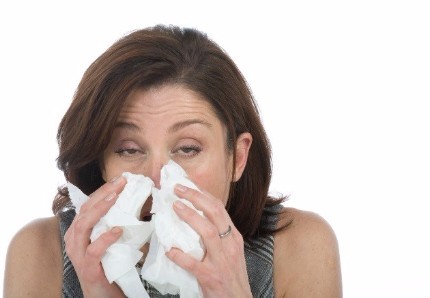The spring allergy season is upon us, and unfortunately, each year seems to be outdoing the prior one in terms of severity.
We can thank our milder winters and the presence of El Niño for that.
According to Dr. Clifford Bassett, founder and medical director of Allergy and Asthma Care of New York, as a result of El Niño and the wet winter, we’re seeing very healthy root systems in trees…so these root systems are pumped and ready to release pollen earlier.
Plus climate change is causing more carbon dioxide in our environment, which in turn tells a lot of plants to produce more pollen, and the pollen itself is more supercharged and powerful.
But the good news is there are ways that you can fight back at this “Pollen on Steroids” and safely and naturally get relief from your allergy symptoms!
Probiotic supplementation
Probiotics like Super Shield can be very helpful in combating both seasonal and year-round allergies for two reasons—they can manufacture enzymes to help your body break down allergens, plus they can support your immune system function and help tame the “over-reaction” that occurs with allergies.
Have the right diet
Your diet is the #1 single biggest determining factor of your state of health from head to toe, and allergies are no exception.
First of all, an unhealthy diet of processed foods, refined carbs, and soda feeds the harmful, dangerous bacteria in your gut, and eventually they can overcome and “crowd out” your friendly gut flora—leaving you with less of their allergy-fighting power.
Plus an unhealthy diet encourages acid waste buildup, and that can worsen congestion and mucus–which the typical allergy sufferer already has an abundance of.
Stick to fresh fruits and vegetables, meats, poultry, fish, eggs and healthy fats. Avoid dairy products because they can be very mucus-forming.
And don’t be shy with spices. Spicy foods like chili peppers, Dijon mustard, fresh garlic, onions and horseradish can have a decongestant effect.
Wear natural fabrics
If you’ve got seasonal allergies that are kicking into gear, skip the synthetic fabrics and stick to cotton clothing.
Synthetic fabrics (like polyester and nylon) can create an electrical charge which can actually attract pollen!
And for people with pollen allergies, that means you can practically feel like you’re lying down in a field of wildflowers every time you get dressed!
Don’t forget your bed sheets too—stick to cotton and launder them in hot water.
Reduce stress
Stress can destroy your friendly gut flora and ignite inflammatory responses in your body.
That’s why when you’re under stress you may find yourself getting one sickness after another or suffering digestive problems or having chronic headaches. Your immune system is challenged and inflammation is on the warpath inside of you.
It’s also why many people seem to have allergy flare-ups during stress.
Wear your glasses or sunglasses on high pollen days
Contact lenses can cause pollen and other irritants to be trapped in your eyes, which can ring the alarm for allergy symptoms to flare.
Soft contacts are especially guilty here, as they are more permeable and allow substances like pollen to seep through.
So if you’re a contact lens wearer, it may behoove you to wear your glasses on high pollen days or invest in some daily wear disposable lenses during your tougher allergy flare-up days.
Also, consider wearing sunglasses when you go outside to help shield your eyes from pollen too.
Shower at night
Your skin and hair can also trap pollen, dust, and other allergens—and they can stir up allergic responses while you sleep and guarantee you’ll be stuffed up in the morning.
Try bathing or showering in the evening instead of the morning, or at least, wash your face and hands and brush your hair before bed.
Watch the wine and beer
Some people are very sensitive to the sulfites in red wine and beer—so if your allergies are worse in the morning when you’ve had alcohol the night before, that may be why.
Plus many wines are aged in oak barrels—so if you are sensitive to oak, look for wine varieties that are labeled “unoaked.”
Put these safe, effective allergy-fighting measures into use for you and see how much better you can breathe this spring as a result!

